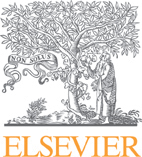Centenary Anniversary Conference
Academic Libraries Today: Our Future is Now
November 8, 2012
Wang Gungwu Theatre
The University of Hong Kong
Speakers & presentation abstracts
Ingrid Parent
PowerPoint presentation
University Librarian, University of British Columbia
President, International Federation of Library Associations and Institutions (IFLA)
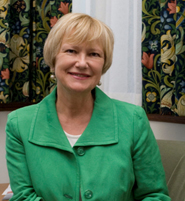 |
Leveraging the Digital Age: 21st Century Libraries in a Global Context The 21st century, so far, has been a time of tremendous change for academic libraries. Information has become ubiquitous, with powerful search engines, wireless connectivity, online communities, and handheld mobile devices. Our students are at ease online, using digital technologies in their everyday lives. Researchers are embracing digital tools and technologies in order to increase their productivity and cultivate new relationships across disciplinary boundaries. Information seeking behaviour has been fundamentally changed by 24/7 access to scholarly material and hugely powerful search engines. Increasingly, people expect to be able to work, learn, and study whenever and wherever they want. In addition, it is unlikely that things will slow in the future. Indeed, rates of change are expected to accelerate. In this presentation, Ingrid Parent will look into the future and explore some potential scenarios for research and education; discuss the possible impact these futures may have on library services; and consider how research libraries can remain relevant in such tumultuous times. |
Zhu Qiang
PowerPoint presentation
Library Director, Peking University Library
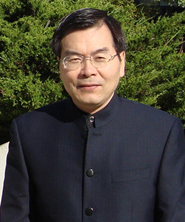 |
Service Initiatives Recently Developed in Peking University Library Along with the new development of higher education as well as library environment, academic libraries in mainland China are facing a lot of challenges. To meet the new needs and fulfill the mission, they are making great effort to improve their services to users. Taking Peking University library as an example, the presentation introduces some new actions and services such as subject liaison services, reading promotion seminars, discovery tools, competitive information analysis, mobile services, etc. It is approved that in the digital era, library should constantly make changes, to meet users’ new requirement, in the meanwhile, traditional services still have a lot of spaces to be improved. |
Peter Cunich
PowerPoint presentation
Associate Professor, School of Humanities, The University of Hong Kong
 |
A British Colony and its Books: The University of Hong Kong and its Libraries, 1912-62 While the focus of this conference is very much on the future of academic libraries in today’s world, this meeting is nevertheless being held to coincide with the beginning of the centenary celebrations of the HKU Libraries, so it is perhaps not totally inappropriate to spend some time reflecting upon the past history of one of the oldest libraries in Hong Kong. It is well known that the HKU Libraries played an important role in preserving some of the most valuable book collections in the British colony in the first half of the twentieth century, at the same time as building up teaching and research collections with a more academic focus. But unlike great universities elsewhere in the world at that time, the University of Hong Kong was reluctant to invest too much money or effort in a resource which other institutions considered to be central to the whole academic enterprise. The implementation of library policy in the first fifty years of the University’s existence therefore faced funding and staffing shortages, the destructive impact of the Second World War, and a lack of interest from government and philanthropists alike. This paper will examine the early history of the University Libraries in the context of developments taking place elsewhere in the academic world up to the 1960s when the Hong Kong colonial government finally embraced the need for an up-to-date public library system, allowing the HKU Libraries to focus on building a more dedicated academic collection. |
Joyce Chao-Chen, Chen
PowerPoint presentation
Professor and University Librarian,
National Taiwan Normal University
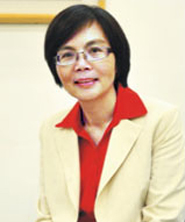 |
Library as Publisher: the Ideas and Experiences of National Taiwan Normal University Library |
Anne Kenney
PowerPoint presentation
Carl A. Kroch University Librarian, Cornell University
 |
Future Directions for Collection Development in Academic and Research Libraries 21st century academic and research libraries face many new challenges and opportunities as a result of changes in the nature of teaching, research, and learning brought about by technological advances, emerging patterns of scholarly communication, the globalization of higher education, and economic challenges. Although academic libraries will remain vital to the academic success of faculty and students, their operational and strategic future will be significantly changed. Perhaps nowhere will these changes be more evident than in the way research materials are identified, preserved, and made available. In this paper, I will discuss future directions for collections that move away from a near-exclusive focus on the products of scholarship to one that embraces processes associated with the full life cycle of scholarship. |
Zhang Xiaolin
PowerPoint presentation
Director, National Science Library, Chinese Academy of Sciences
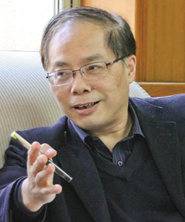 |
Open Access, Open Data, and Open Innovation: Towards a Knowledge-based Open Innovation Service Platform Open access is fast becoming the main stream model of scholarly communications in scientific fields. Research libraries are facing a future where the traditional subscription-based library solution will no longer be a robust and valid solution for research and academic institutions. A paradigmatic shift is called for new resource development strategies. |
Cathrine Harboe-Ree
PowerPoint presentation
University Librarian, Monash University
President, Council of Australian University Librarians (CAUL)
Cathrine.Harboe-Ree@monash.edu
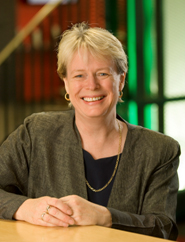 |
Cycling to Success: Academic Libraries and the Research and Learning Cycle Academic libraries have a unique perspective on the cycle of activity that drives research and learning. Indeed, the library is often the only area in a university that sees the interconnectedness between information research and learning skills, scholarly information, stewardship and dissemination of research outputs and the overarching activities of research and learning. This presentation will draw on the experience of one university library – Monash University Library – to demonstrate how university libraries can contribute to each phase of the research and learning cycle in creative ways. It focuses on advances in skills development programs and new ways of contributing to e-learning, as well as new roles in the curation of research data, research data coordination and the dissemination of research activity through an institutional repository and management of an open access press for the university. |
Peter Sidorko
PowerPoint presentation
University Librarian, The University of Hong Kong
President, The Hong Kong Library Association
 |
Academic Library Trends in Hong Kong: Global and Local Issues Globally, academic libraries are facing similar changes arising from the impact of technology, changing student demographics and expectations, societal views of education and financial uncertainty to name just a few. |
Jeffrey Trzeciak
PowerPoint presentation
University Librarian, Washington University in St. Louis
 |
Commercialization of Library Special Collections |
The Centenary Anniversary Conference and Celebrations are proudly sponsored by
Sir Kenneth Fung Ping Fan Foundation Trust I
Dr and Mrs Fung Ping Kan
Mr Kenneth Fung Hing Cheung
Event enquiry: Ms Marine Yip mlyip@hku.hk







